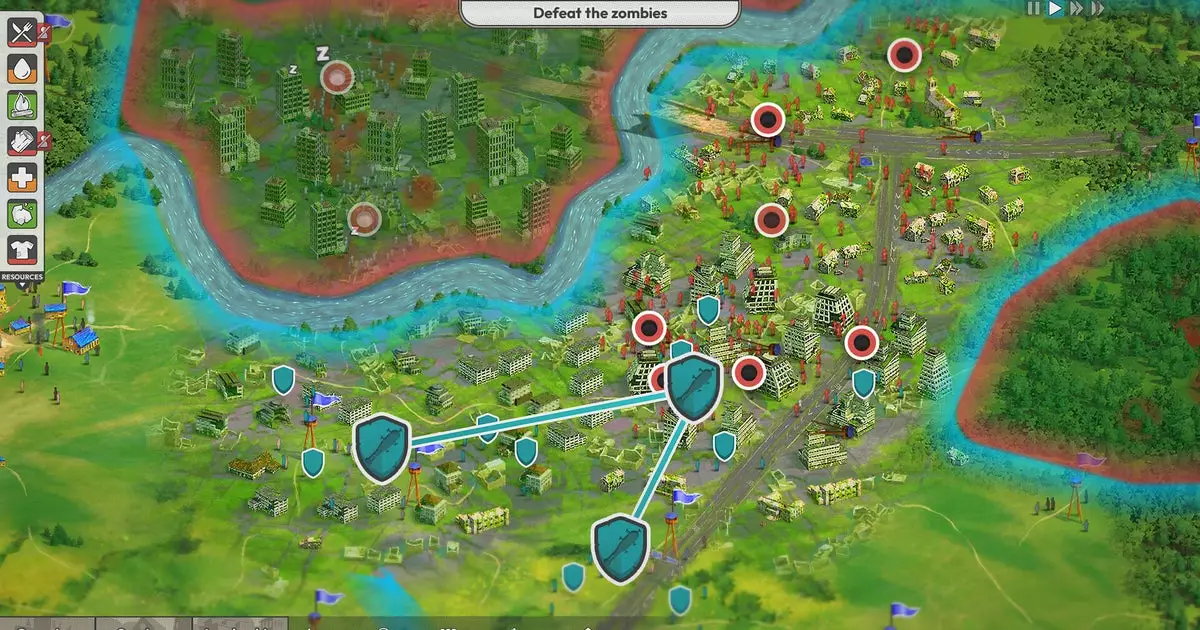The gaming landscape has never shied away from themes of disaster and survival, often reflecting societal fears and anxieties in ways that result in poignant, memorable experiences. Ndemic Creations, the studio behind the acclaimed strategy simulation game Plague Inc., is gearing up to launch a new title that pivots from disease propagation to post-apocalyptic reconstruction. After Inc: Revival invites players to engage in community building amid the remnants of a world ravaged by a zombie apocalypse, weaving a complex narrative that mirrors contemporary public sentiments, perhaps unavoidably influenced by the global pandemic.
A Shift from Virulence to Vitality
Initially released in 2012, Plague Inc. offered players a darkly engaging experience of nurturing and spreading diseases, which found new relevance during the early phases of the COVID-19 pandemic. As many turned to the game to simulate their fears of contagion and societal disruption, it became evident that themes of infection and societal decay were particularly resonant. After Inc: Revival seems to emerge as a response—a chance to reclaim agency in an era where so much appeared uncontrollable. The shift from sowing seeds of destruction to cultivating a thriving society invites players to confront their deepest anxieties by envisioning a new beginning from the ashes of chaos.
Set in a “beautiful post-apocalyptic United Kingdom,” After Inc: Revival presents an alluring contrast of cozy rural aesthetics against the backdrop of crumbling urban sprawls and lurking zombies, creating a unique environment for players to explore. This duality is significant, as it reflects the desire for a return to some semblance of normalcy, albeit within an altered reality. The game’s visuals evoke a blend of the idyllic and the creepy, urging players to think about their choices in a world where the familiar has morphed into something both picturesque and perilous.
The core mechanics of After Inc: Revival revolve around city-building and resource management, familiar concepts that allow players to feel at home in a post-apocalyptic scenario. Players will scavenge and harvest resources from the ruins to rebuild, emphasizing the importance of past lessons in reconstructing society. However, the game tantalizingly poses questions about moral decision-making within this new world: Will you treat your community with compassion, or will you adopt a more authoritarian approach for survival?
The incorporation of character-driven leadership adds layers of strategic depth. Each of the ten unique leaders presents radically different abilities, allowing players to explore varied governance styles, from democratic to dictatorial regimes. These choices are not mere aesthetics but resonate deeply with the ongoing global conversations about governance and community resilience during crises.
Coupling realistic modelling of zombie behavior with a sophisticated narrative algorithm based on player decisions places agency at the forefront of the gameplay. This allows one to interrogate how society can reshape itself through leadership, trade-offs, and sometimes, harsh realities—echoing contemporary discussions surrounding leadership in times of collective trauma.
The game’s artistic direction, reminiscent of titles like King Of Dragon Pass, contributes richly to its themes. While the developers maintain a light-hearted tone in their promotions—humorously asserting that the game is not based on real-world events—the scenario it depicts is unavoidably tied to the memories of the pandemic. After Inc: Revival prompts introspection regarding recovery from trauma, as communities worldwide continue to grapple with the consequences of societal shutdowns.
The challenge lies in whether the game serves as a mere fantasy escapism or a thoughtful commentary on societal resilience. As players navigate through zombie-infested landscapes, they may unearth reflections of their experiences during Covid—an emotional and psychological landscape that’s not easily forgotten.
As After Inc: Revival prepares for an early access release in 2025, it promises to innovate by introducing new levels, character traits, and crises, inviting players to delve deeper into the extensive lore that supports its narrative. It poses an opportunity for growth, both for players and society, as they may reflect on their responses to crises. By turning their thoughts toward rebuilding rather than destructing, Ndemic Creations hopes to offer a constructive outlet for a world eager to rediscover itself, even amid uncertainties.
The game’s transition from plague to progress encapsulates a powerful journey of renewal, challenging both players and societies to consider the power of choices in times of adversity. The hope for After Inc: Revival is that it serves as both a thrilling adventure and a mirror reflecting our fragmented world, igniting discussions about the essence of recovery—from personal reflections to collective narratives.


Leave a Reply